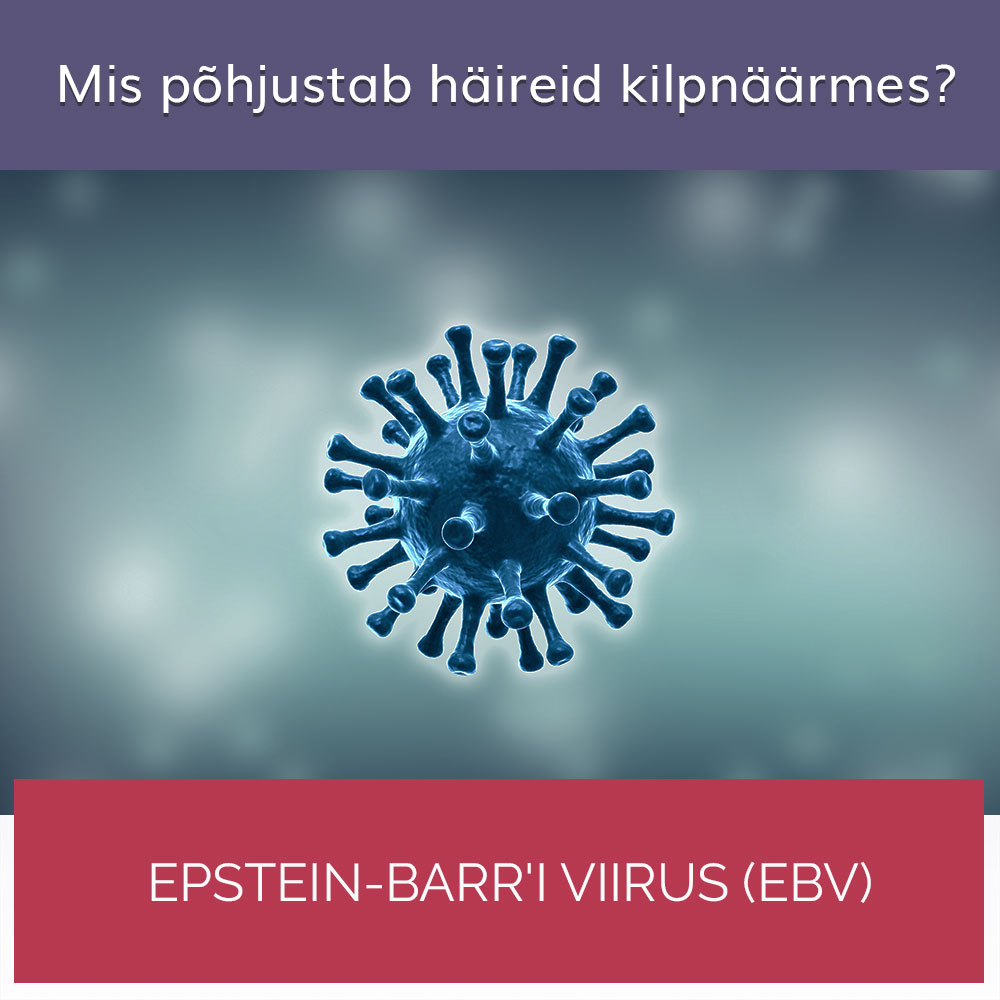The thyroid gland has a major impact on our health and well-being, so looking after it is vital. Increasingly, people, especially women, are being diagnosed with thyroid-related abnormalities. Many even have to consume synthetic thyroid hormones to make up for the deficiencies caused by thyroid disease. In this article, we’ll talk about the root causes of thyroid disease and which foods and supplements can support your body in the treatment and prevention of thyroid problems. We use Anthony William’s “Thyroid Therapy” as a source for the Medical Journal.
But let’s start at the beginning – what is a thyroid gland?
The thyroid gland is the largest endocrine gland, located in front of and on the sides of the trachea and the larynx. The function of this butterfly-shaped gland is to produce hormones that regulate the body’s metabolic rate, growth and development. In addition, the thyroid gland is responsible for the breakdown of fats, is involved in the metabolism of proteins and sugars, regulates body temperature and is responsible for the metabolism of cholesterol. The hormones produced by the thyroid gland are thyroxine, or T4, and triiodothyronine, or T3.

What happens when the thyroid gland is not working properly?
Thyroid disease can show up in many ways. The most common symptoms are:
- fatigue
- constant drowsiness even during the day
- sleep disorders
- Hot news
- Feeling cold
- slow heartbeat and palpitations
- memory impairment
- concentration difficulties
- menstrual disorders
- nervous system disorders
- indigestion
- weight changes (gain or loss of weight)
- puffiness (in cases of hyperthyroidism).
Thyroid diseases are divided into:
1. Thyroiditis,
Thyroiditis damages the cells that produce the inner lining of the thyroid gland and can result in hormone deficiencies.
2. Hypothyroidism e. hypothyroidism
In hypothyroidism, the thyroid gland does not produce enough hormones. Excessively low levels of thyroid hormones in the blood indicate hypothyroidism. Under-utilisation can be indicated by unexplained weight gain, constipation, high cholesterol, constant fatigue and hair and skin problems.
3. Hyperthyroidism e. hyperthyroidism
In hyperthyroidism, however, the thyroid gland produces too many hormones. Symptoms of overactivity include weight loss, but also increased appetite, nervousness, easy irritability, restlessness, loss of heat, increased sweating, brittle and thin hair, irregular menstruation, muscle cramps.
4. An enlarged thyroid gland e. glowing e. ostrich
An enlarged thyroidmeans that the thyroid gland is swollen and enlarged. The symptoms of thyroid disease may or may not be present.
5. Autoimmune thyroiditis e. Hashimoto’s thyroiditis
Hashimoto’s thyroiditis is described as an autoimmune disease that can occur at any age, but women are more susceptible. It is a chronic thyroid disease in which the body is said to attack itself by producing antibodies that destroy the thyroid gland. For the record, this is not scientifically proven – it’s just a common theory – and in reality the body never attacks itself. What the real cause of Hashimoto’s thyroiditis is will soon become clear.
6. Malignant thyroid tumours
In malignant thyroid tumours, there is an unrestricted proliferation of thyroid cells, which can lead to thyroid enlargement, nodules and hyperthyroidism.

What causes thyroid disorders?
According to medical journalist Anthony William, 95% of thyroid diseases are caused by the thyroid virus, Epstein-Barr virus (EBV), which is also the cause of mononucleosis and a wide range of other autoimmune conditions (the remaining 5% are caused by harmful radiation). Why EBV has stayed off doctors’ radar is that if EBV antibodies are found in the blood, it is assumed that the person has had the virus and the virus has left the body.
In reality, the virus has not left the body, only the first phase of its attack is over. Unless this particular virus has been deliberately cleared from the body, EBV has instead burrowed deep into the human organs, waiting for a trigger that will weaken the organism enough to bring it out of its dormant state. This could be months, years or even decades from now. When this happens, EBV can start attacking the thyroid gland, causing the body to produce antibodies against it. This is how an autoimmune disease can be diagnosed, when in fact the body was producing antibodies against the virus and not against its own tissues. The virus has simply stayed off the radar, although more and more doctors and health professionals around the world are starting to pay attention to it.
As mentioned, a virus can sit in your body for years, waiting for a trigger to help it move on to the next phase of its attack. The main types of virus the triggers are mould, heavy metals (especially mercury), zinc deficiency, vitamin B12 deficiency, insecticides and herbicides (incl. DDT), Insecticides in the home (ant and mosquito poisons and toxic aerosols to kill other insects),emotional trauma and stress, prescription drugs that feed the virus (antibiotics and benzodiazepines weaken immunity and feed EBV), high doses of drugs or multiple drugs that exhaust the immune system by opening the door to viruses. Hormonal changes, drug use, debilitating injuries, too many sleepless nights, toxins in the air from fresh paint and more also play a role. In other words, if your body has too many stressors at once and too few nutrients to help it cope, it can be the death knell for Epstein-Barr virus and thyroid disease.
As you may have noticed, it is mentioned in several places that one thing or another feeds the virus. According to the medical media, viruses do indeed use food to live. They don’t have mouths, but food passes through their cell membranes, and so do the residues of‘eating’. The thyroid gland is nourished by many toxins, synthetic substances and heavy metals, as well as some of the foods we consume on a daily basis – these are discussed below.
Nevertheless, there is a lot we can do to prevent thyroid disease and to cure the condition we already have. We’ll talk about how to support your body in a moment.
Thyroid-boosting foods and practices
At the heart of it all is a health-promoting diet and avoidance of toxins and heavy metals. In its book “Thyroid Therapy”, the medical journal has written a comprehensive account of both the actual causes of various thyroid diseases and advice on how to cure them. To get you started on your recovery and support your body today, here are the key recommendations highlighted in the book.

Foods with a strong thyroid-healing effect:
- Artichoke: is one of the most powerful allies in the pathway to thyroid clearance, containing phytochemicals that work with enzymes and amino acids in the human body to support the thyroid and immune system;
- Oranges and mandarins: calcium-rich citrus fruits such as oranges and mandarins help protect the thyroid gland from damage caused by the EBV virus. In addition, oranges are rich in vitamin C, which also helps to repair liver damage and cleanse the body of EBV residues;
- Fennel or fennel: rich in phytochemicals, fennel helps balance thyroid hormones;
- Banana: rich in amino acids and potassium, bananas have antiviral and anti-inflammatory effects;
- Basil: helps slow down the activity of EBV particles that have invaded the thyroid gland;
- Dates: are rich in potassium, magnesium and glucose, which support your internal glands;
- Pomegranate: helps cleanse the blood and lymphatic system of toxins and prevents EBV and other viruses from working;
- Alfalfa leaf juice: is also an excellent body cleanser, helping to flush toxins from the body and also having an antiviral effect;
- Sprouts and mini sprouts: these all-powerful healers are also worth adding to the menu. Sprouts and sprouts are rich in zinc and selenium, which strengthen your immune system and help fight the EBV virus. In addition, the sprouts contain vital micronutrients that help to inhibit the growth of thyroid nodules;
- Ginger: rich in easily absorbed vitamin C, ginger effectively destroys EBV particles, helping to balance and stabilise the thyroid gland, stimulating both under- and overactive glands;
- Hemp seeds: supply the thyroid gland with micronutrients and essential amino acids;
- Potatoes: there’s no getting around potatoes, which are high in lysine and tyrosine, which are needed to produce thyroid hormones;
- Coconut: coc onut reduces inflammation, destroys EBV particles and inhibits the growth of thyroid nodules. Natural coconut oil, coconut butter, dried coconut, coconut milk and coconut water are all suitable;
- Coriander: effectively removes toxic heavy metals and renders harmless the nerve toxins excreted by EBV;
- Throat: moisturises the lymphatic system, especially around the neck, where the thyroid gland’s personal immune system is located. Throat helps the lymphatic system to cleanse the thyroid more effectively and also inhibits the development of mononucleosis;
- Turmeric: helps restore damaged thyroid tissue, reduces inflammation and destroys virus particles;
- Pumpkins: help stabilise the thyroid gland and stimulate the production of the thyroid hormones T4 and T3;
- Garlic: contains antiviral and antibacterial substances that protect your body against EBV by killing virus particles;
- Kale and lettuce: contain essential phytochemicals that penetrate the thyroid gland and destroy EBV particles. In addition, the mineral salts in lettuce support the adrenal glands, which in turn support thyroid function;
- Cauliflower: it contains the mineral boron, which supports the endocrine glands, and phytochemicals that prevent the thyroid gland of people who have been taking synthetic thyroid hormones for a long time from atrophying.
Other excellent remedies for thyroid problems are mango, various berries, seaweeds (edible algae), honey, wild blueberries, papaya, parsley, pears, nuts, radishes, cruciferous vegetables, arugula, sesame seeds, celery, onion, asparagus, spinach, tomato, thyme, maple syrup, figs and apples.
However, it is worth avoiding:
- Eggs are a staple food for viruses. If you’ve got the EBV virus raging in your body, you may also have problems with strawberry eggs;
- Cheese and other dairy products hinder the whole healing process and are food for viruses and do not allow you to get rid of thyroid disease;
- Gluten poses problems for all chronic health conditions by being a food for all pathogens, including EBV. When consuming gluten, you may experience a variety of symptoms, including fatigue, difficulty concentrating, migraines, headaches, blurred vision, aches and pains, mood swings, etc.
- Rapeseed oil is also food for the EBV virus.
- Unfortunately for corn , the fact that the plant is often sprayed with insecticides and weed-killers, which are also transferred to the organism when the maize is eaten, thereby feeding the virus again. Even GMO-free organic maize may unfortunately no longer be truly “clean” today, and can cause problems. However, if you prefer to eat corn, you can eat a variety of healing fruits to soften its harmful effects;
- The same applies to soy as to maize. Much of the soy is genetically modified (GMO) and can contain extremely high concentrations of pesticides and herbicides, which are not good for healing. If you want to consume soy, be sure to choose organic soy with a GMO-free label.
- Pork should also be avoided. As pork fat stays in the bloodstream for much longer (usually 12-16 hours) after a meal than other animal fats (3-6 hours), it has a negative effect on the healing process. However, in the case of both thyroid and other health problems, the fat content of the blood should be as low as possible, because the higher the fat content, the less oxygen there is in the blood. Oxygen-depleted blood is a great place for viruses to spread and circulate.
Supplements to support thyroid function
Healing herbs and supplements could always be part of the healing process, helping to invigorate the body and flush out pathogens faster. In the case of thyroid, it is definitely worth considering both iodine, liquid zinc sulphate, vitamin C, 5-MTHF , group B vitamins, Curcumin , Magnesium, Manganese, Selenium as well as amino acids L-lysine and L-tyrosine. In addition, a variety of algae such as. spirulina dulse and spices such as star anise.
More information can be found in the Medical Media book “Thyroid Therapy” by Anthony William.
dissects
in detail about the thyroid gland, describing in depth the mechanisms of the problems and giving recommendations for a definitive cure.
But healing supplements are still waiting for you at our
in our online shop!
The information provided in this article is for informational purposes only; it is not medical advice, diagnosis or treatment. If health problems occur, a doctor or health professional should be consulted. If you would like to use alternative or new medicines to support your health, please share this information with your GP. Bring her a book and discuss whether and how therapeutic foods and supplements could be used in her recovery.




 All products
All products
 Powders
Powders
 Capsules
Capsules
 Tinctures
Tinctures
 Kits
Kits
 Brain health
Brain health
 Immunity
Immunity
 Nails and skin
Nails and skin
 Eyes and joints
Eyes and joints
 Liver health
Liver health
 Body cleansing
Body cleansing
 Babies and mothers
Babies and mothers
 Dry goods
Dry goods
 Natural sugars
Natural sugars
 Spices
Spices
 Natural cleaning products
Natural cleaning products
 Drinks
Drinks
 Dried fruit
Dried fruit
 Herbal teas
Herbal teas



